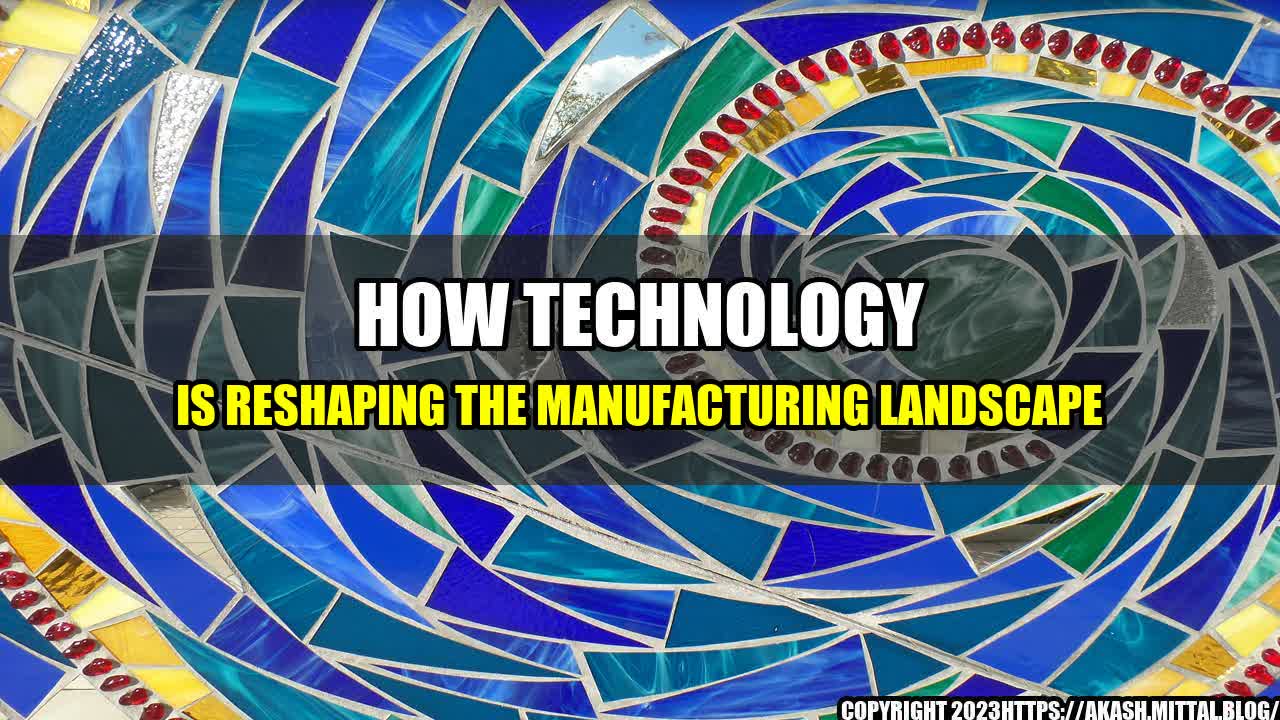
The year is 2015, and John, a factory supervisor, has just been given a report of a defective machine by one of his workers. The machine's sensors were picking up strange readings, indicating that something is wrong with the equipment. John quickly accesses the manufacturing line dashboard on his tablet and identifies the malfunctioning machine. He sees that the machine's health statistics had been deteriorating for the past few days, and he orders a replacement part to be installed, which would arrive the next day. The system sends an automatic notification to the maintenance team to fix the machine. The machine is switched off, repaired, and integrated back into the assembly line effortlessly, minimizing downtime and disruption to the production process.
This story is an illustration of how technology has revolutionized the manufacturing industry. The introduction of IoT, AI, and automation has transformed the manufacturing landscape from a labor-intensive industry into a sophisticated, digitally advanced process that is continuously evolving. The use of technology has brought with it significant benefits, including increased efficiency, reduced labor costs, faster production cycles, and improved customer experiences.
The rise of technology in manufacturing has seen some improvements in the industry that we can use to quantify the impact of technology and automation. Below are some examples;
1. Reduced Downtime and Improved Productivity
In the example above, John was able to identify a dysfunctional machine and have it repaired efficiently and effectively using technology. This strategy has been adopted by many factories, leading to a 26% decrease in unscheduled downtime and a 27% increase in product quality since 2017. The automation of maintenance processes and use of IoT sensors have enabled manufacturers to monitor machines in real-time, identify faults, and service them proactively before they break down.
2. Improved Product Quality and Customization
The integration of technology in manufacturing has enabled factories to customize products to meet the customer's specific needs. For instance, Industry 4.0 technologies, such as 3D printing, have made it possible to produce bespoke products at rapid speeds without affecting quality. Furthermore, the automation of production processes has eliminated the possibility of human error, thereby enhancing quality and reducing waste.
3. Increased Efficiency and Reduced Labor Costs
Technology has reduced labor costs by replacing human functions with automated systems and robots. According to a study by PwC, by 2030, up to 38% of jobs in manufacturing could be automated. This automation has allowed factories to achieve higher operating efficiencies and produce more goods with less human intervention. For instance, material handling robots such as KUKA AG, have been known to perform repetitive, and labor-intensive tasks such as welding, packaging, and palletizing, resulting in increased efficiency and reduced labor costs.
Conclusion
The manufacturing industry has come a long way, and technology has been a significant catalyst in this change. From the early days of factory mass production to the current era of smart manufacturing, technology has always had a role to play in shaping the manufacturing landscape. It is essential that manufacturers keep up with new developments continuously; otherwise, they risk being left behind. Below we summarize the three significant benefits technology has brought to the manufacturing space.
- Increased efficiency and productivity.
- High-quality output and customization to meet customer requirements.
- Reduced labor costs and improved safety.
Manufacturers who embrace technology and use it to their advantage will remain competitive and stay ahead of the curve.
References:
- https://www.industryweek.com/technology-and-iiot/article/21943943/iot-adds-value-to-manufacturing#:~:text=Through%20IoT%2C%20manufacturers%20can%20reduce%20unscheduled%20downtime%20by%2026%25
- https://www.mckinsey.com/business-functions/operations/our-insights/how-advanced-analytics-is-reimagining-manufacturing
- https://www.pwc.com/gx/en/industries/industries-4.0/landing-page/the-impact-of-industry-4-0-on-the-future-of-work.html
Category: Technology and Manufacturing
SEO Keywords: Technology, Manufacturing, IoT, Industry 4.0, Automation, Downtime, Productivity, Quality, Customization, Efficiency, Labor Costs
Hashtags: #TechnologyinManufacturing #Industry4.0 #SmartManufacturing #Automation #IoT #Efficiency #Productivity #QualityControl #Customization #LaborCosts
Curated by Team Akash.Mittal.Blog
Share on Twitter Share on LinkedIn